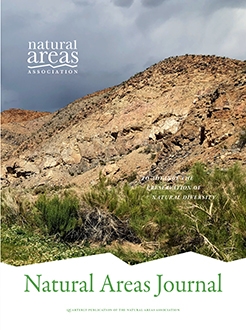Protected areas rarely are large enough to encompass the ecological processes that affect them. Accordingly, some authors call for cooperative management of multiple jurisdictions within protected area-centered ecosystems (PACEs) to sustain landscape-scale processes and maximize connectivity and ecosystem service flows. However, over time, differing land use and disturbance histories between adjoining jurisdictions may lead to divergence in plant community composition or structure along administrative boundaries, thus reducing landscape connectivity within PACEs. We tested this hypothesis by measuring evidence of human disturbance and occurrence of nonnative plant species along boundaries between protected areas and multiple-use lands in the California PACEs surrounding Lassen Volcanic and Sequoia & Kings Canyon National Parks. Invasive plants were found in about half of sampled units at Sequoia & Kings Canyon, but occurrence was rare at Lassen Volcanic and above 2000 m in both PACEs. We found no significant differences in invasive plant occurrence or human disturbance along boundaries between adjoining jurisdictions, and correlations between disturbance and invasive plant detections were not significant except in U.S. Forest Service non-wilderness lands. The overall low rate of detection in this study limited the power of statistical tests, and may be largely due to the high average elevation of sampling locations. Cooperative invasive plant management already occurs at times within these PACEs, and its continued use may be useful for maintaining a relatively invader-free environment under future conditions.
How to translate text using browser tools
18 January 2023
Disturbance and Invasive Plant Occurrence along High-Elevation Boundaries Surrounding California Protected Areas
Natalie Otto,
Mark Brunson,
Clare Aslan
ACCESS THE FULL ARTICLE

Natural Areas Journal
Vol. 43 • No. 1
January 2023
Vol. 43 • No. 1
January 2023
land management
national parks
protected area-centered ecosystem
weed management




